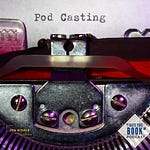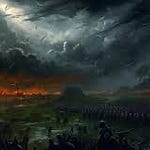The Islamic Golden Age: A Beacon of Knowledge and Progress
This Wednesday, we're diving into the brilliance of the Islamic Golden Age, a period often overlooked in Western narratives but one that shines as a beacon of knowledge, enlightenment, and groundbreaking scientific advancements. From the 8th to the 14th century, the Islamic world wasn’t just a military powerhouse; it was a hub of intellectual activity, spreading across vast territories and fostering a culture that deeply valued education and the dissemination of knowledge.
While medieval Christendom often portrayed the Islamic world as backward and stagnant, the reality was quite the opposite. As Europe grappled with the Dark Ages—a time marked by turmoil, disease, and a significant decline in cultural and scientific output—the Islamic world was flourishing. Cities like Baghdad, Cairo, and Cordoba became melting pots of intellectual thought, where scholars from diverse backgrounds came together to share and build upon each other's ideas.
Key figures like Caliph Harun al-Rashid played pivotal roles in fostering this environment of intellectual curiosity. His establishment of the Bayt al-Hikma, or House of Wisdom in Baghdad, wasn't just a library; it was a vibrant research institution where scholars translated, preserved, and expanded upon the knowledge of ancient civilizations such as the Greeks, Persians, and Indians. This period saw the works of Aristotle and Galen not only preserved but critiqued, developed further, and eventually fed back into Europe, helping ignite the Renaissance.
The advancements made during this period, particularly in medicine by scholars like Avicenna and Al-Razi, were nothing short of revolutionary. Avicenna’s *Canon of Medicine* became a medical bible for centuries, synthesizing knowledge from various cultures and introducing concepts ahead of their time. Similarly, Al-Razi's contributions to pediatrics and ophthalmology laid the groundwork for modern practices, integrating fields like botany, pharmacology, and surgery into a comprehensive healthcare system.
Why does this matter today? The legacy of the Islamic Golden Age serves as a powerful reminder that the pursuit of knowledge and the spirit of inquiry transcend borders, religions, and cultures. It’s a universal endeavor, and it’s this collaborative spirit that has propelled human progress throughout history. Yet, despite this rich history, there remains a misguided perception in the West about Islam and its contributions to civilization. This period wasn’t just a chapter in the history of Islam; it was a chapter in the history of humanity—a story of how a civilization at the crossroads of the world became a beacon of light during a time of darkness, and how its legacy continues to inspire us today.
Personal Reflections on Abandonment and Its Deep-Seated Impacts
Switching gears, this Friday, we’ll delve into something deeply personal and psychological—abandonment. When we think of abandonment, it’s easy to picture a child physically left alone, perhaps due to separation, divorce, or death. But abandonment isn’t just about the physical absence of a caregiver. Emotional abandonment, where a parent is physically present but emotionally detached, can be just as devastating.
For many, including myself, these feelings of abandonment resurface in adulthood, manifesting as psychological disorders like binge eating disorder, which I’ve been diagnosed with. It took me years to connect the dots between my own life experiences and this disorder. For me, food became more than sustenance; it was a source of comfort, a temporary fix for the emotional coldness at home—a form of nurturing that was otherwise absent in my childhood.
But this reliance on food can spiral into deeply ingrained patterns of addiction. It’s not just about eating; it’s about filling the void left by neglect and emotional abandonment. The internal critic that develops from these early experiences can be harsh, driving individuals into cycles of shame, worthlessness, and self-recrimination. This isn’t just academic talk—this is something I live with every day.
It’s crucial to understand that abandonment and neglect, whether recognized or not, have profound impacts on self-worth and relationships. And while my experience is personal, it’s a shared struggle for many. Last week’s post on binge eating disorder prompted many of you to reach out with your own stories, reminding us that many didn’t have that cookie-cutter childhood, and those experiences continue to shape our lives.
If you’re interested in this topic, be sure to check out Friday’s post on abandonment. I’m keen to hear your thoughts and experiences, whether you want to share publicly or privately. Feel free to reach out through Substack’s messaging facility, my social media, or my website.
The Democratic National Convention: A Crucial Moment in Global Politics
Now, let’s turn to what’s happening across the pond in Chicago, where the Democratic National Convention is in full swing. With just three months to go before the 2024 election, the energy at the United Center Arena is palpable. Thousands have gathered, and the atmosphere is electric, even from here in the UK.
This year’s DNC kicked off on Monday, and by Tuesday night, Barack and Michelle Obama made powerful returns to the spotlight, rallying the troops for Kamala Harris. Obama, ever the elder statesman, delivered a speech filled with humor and hard-hitting truths, critiquing Trump and laying out a clear, actionable roadmap for the Democrats to win back the White House in November.
But why is this election so important to me, a British guy living in the southwest of England? The truth is, it carries enormous significance, not just for the United States, but for the entire world—particularly Europe. With Trump aligning himself with autocrats like Viktor Orbán in Hungary and Vladimir Putin in Russia, the stakes couldn’t be higher. Trump, once the leader of the so-called free world, seems intent on reshaping America into something more akin to an authoritarian state. If Trump returns to power, the implications will be dire, not just for the US, but for all of us.
Trump’s influence would ripple across the Atlantic, fragmenting Europe’s ability to protect itself. With the US potentially stepping back from its role as a stabilizing force, European nations could find themselves more vulnerable to external threats and internal divisions. NATO, the cornerstone of European security, could be weakened, leaving Europe to fend for itself in a world where autocrats are emboldened.
We’ve already seen how Trump’s presidency emboldened far-right movements across Europe. Leaders like Orbán and Poland’s Andrzej Duda have taken cues from Trump’s playbook, challenging the rule of law and democratic institutions in their own countries. A second Trump presidency could push these leaders further down that path, destabilizing the region and undermining the values that have kept Europe relatively peaceful since World War II.
Moreover, Trump’s stance on climate change—or rather, his denial of it—poses a global threat. His administration rolled back numerous environmental protections, pulled the US out of the Paris Agreement, and stalled global efforts to combat climate change. If Trump were to regain power, we could see a resurgence of these regressive policies, hindering global progress on addressing one of the most pressing issues of our time.
The American election isn’t just about choosing the next US president; it’s about determining the direction of global leadership. Will the world continue to uphold democratic values, human rights, and a commitment to a sustainable future? Or will we see a retreat into nationalism, authoritarianism, and environmental neglect? That’s why this election matters—not just to Americans, but to all of us.
As we move towards the final days of the convention, all eyes are on Kamala Harris. Thursday night, she will formally accept the presidential nomination and deliver what could be the most important speech of her career. There’s a real sense that this is her moment to shine, to solidify her place in history as she steps up to lead the Democratic Party into the future.
So, stay tuned. Whether it’s through the sharp analysis of Rachel Maddow, the relentless fact-checking of Brian Taylor Cohen, or just watching the speeches as they unfold, this is a moment in history you won’t want to miss.
Final Thoughts: Embracing My Past and Moving Forward
Before we wrap up, I want to circle back to something personal—my recent post on child abuse. I received many comments from you, and I want to thank you for that. But let’s be clear: I’m not brave or courageous for sharing my story. I’m not embarrassed by it either. I’m just honest, and it’s simply who I am. The abuse I’ve endured has shaped me, and in a strange way, I’ve come to terms with that. I kind of like who I am because of it. Does that make sense?
My parents taught me a lot of things, and while they might not have loved me in the way I needed, I’ve forgiven them and wish them well on their journey. It’s amazing how many adults carry the scars of an imperfect childhood. Abuse is a broad term and can be subjective depending on your core values, but if your childhood experiences are shaping your adult life, it’s clear that the net wasn’t cast too far.
So, there you have it—a journey through the Islamic Golden Age, psychological depths, political optimism, and personal reflection. It’s a lot to take in, but that’s what we’re here to do on On The Edge—dig deep, explore, and grow together.
Thank you for tuning in. Watch out for Wednesday’s deep dive on the Islamic world, and Friday’s post on abandonment. If you found value in today’s episode, please share it with someone who might benefit. Don’t forget to subscribe, and I look forward to our next episode, where we will be talking about the Dark Ages and the definitions of C-PTSD.












Share this post